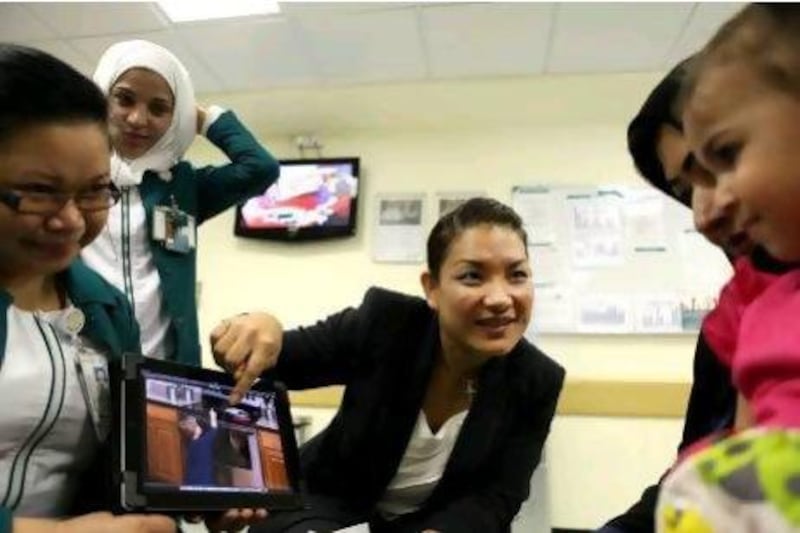ABU DHABI // Parents are being urged to keep a close eye on their children after health experts revealed new figures showing that the number of burn cases notably increases during Ramadan.
Figures from the 2011 Health Authority Abu Dhabi (Haad) health statistics report show that, on average, between 75 and 85 per cent of beds in the capital's primary burns unit were occupied during Ramadan - 10 to 15 per cent higher than the rest of the year.
There are 10 critical care beds dedicated for burn victims in the emirate, all of which are at Mafraq Hospital. Burn victims are admitted to the hospital's emergency department. However, those who suffer burns on more than 10 per cent of their body or in delicate regions, such as the hand, face, or genitals, are sent to the burns unit.
Experts attributed the rise during Ramadan to increased cooking at home and distractions as adult family members prepare for iftar and suhoor.
Bunna Eng-Tusitala, the hospital's burns unit manager, said most cases involve children pulling hot water or soup from the stove, or knocking over a hot beverage their parents were drinking.
"For children under three, accidentally turning on the hot water is a common problem," Ms Eng-Tusitala said. "The main cause for those between the ages of three and seven is playing with matches."
The hospital received 425 burn cases in the first half of 2012, while the annual average for 2010 and 2011 stood at 400 each year.
Nearly half of all the cases the burns unit receives are children below 12.
In 2011, 40 per cent of patients admitted to the burns unit were children, and nearly a quarter of the total admissions were below the age of three. More than two-thirds of the burns were a direct result of hot liquid being spilt on the child. Only 10 per cent of parents were able to administer immediate first aid as most did not know how to handle the situation.
These figures have spurred the hospital to launch a month-long public awareness campaign during Ramadan with the aim of educating parents about the importance of prevention and effective first-aid methods.
"Lack of [prevention awareness] and safety is half the cause of any accidents, and not knowing proper first-aid techniques is half the cause of complications after any accident," said Dr Jihad Awad of the hospital's emergency department.
"There are many myths associated with burn accidents first aid, such as using toothpaste, tomato paste, or ice. Thus, not knowing how to act might exceed failure to prevent implications on to actually making things worse."
Parents must not panic, Ms Eng-Tusitala said, adding that if the child is crying or screaming it's a good sign because it means their senses are still intact.
"Immediately running cold water on a burn for 10 to 20 minutes is most effective in reducing the severity of a burn significantly," she said. "We know that parent's can't supervise their children all day, but taking simple and important measures, such as turning off the water heater and keeping children away from the stove, can prevent a disaster from happening."
Doctors in Dubai also said burn cases increase significantly during Ramadan. The emirate's main burns unit at Rashid Hospital receives between six to eight cases a month, said Dr Marwan Al Zarouni, head of the burns and wound care unit. This number doubles during Ramadan.
However, most of the patients Dr Al Zarouni sees are housemaids and older family members.
"It's the result of more cooking and not following safety rules and regulations," he said. "I'm still surprised that gas cylinder explosions occur given the strict rules put in place by the Ministry of Interior, which include the gas cylinder is not placed in the home. Some people are still not adhering to these rules and putting the cylinder in the kitchen."
The hospital's burns unit has eight beds, all of which are currently occupied.
The fact that Ramadan coincides with summer exacerbates the situation, Dr Al Zarouni said, adding that the number of cases increase by between 50 and 60 per cent at this time of the year.
"Children are at home and they're looking for action - often in all the wrong places," he said. "In addition to following safety regulations, parents need to involve their children in activities they can benefit from."






